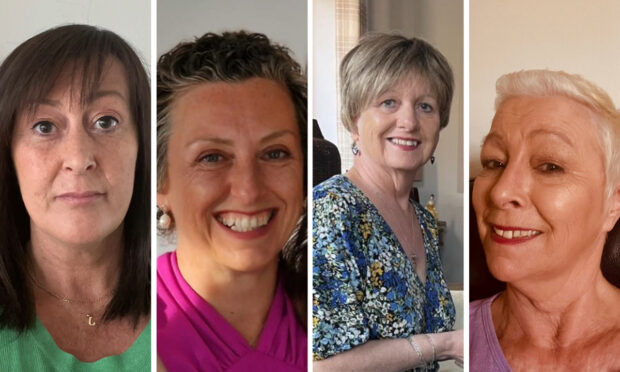
Scottish cancer patients have told how they had to find £30,000 for private treatment in order to save their lives.
Two years after the launch of Scotland’s flagship Women’s Health Plan promised to tackle health inequality, treatment for ovarian cancer remains a postcode lottery.
While women in northern and eastern Scotland are able to access treatment and surgery quickly, those in the west face delays which can mean the difference between life and death – unless they can pay for their own treatment.
During lockdown, a specialist private surgeon based in London’s Hammersmith Hospital was paid by the NHS to carry out ovarian cancer treatment on Scottish patients. And this is the same surgeon Scottish patients are now paying.
Known as the “silent killer”, most ovarian cancer is diagnosed at late stages, consequently the treatment pathway relies on speed – three rounds of chemotherapy followed within four weeks by surgery then a final three rounds of chemotherapy.
Where surgeons are not readily available, Scots women have been receiving their six chemos before surgery.
Experts warn this “significantly” affects the survival rate, with 54% living three years or more elsewhere in Scotland compared to just 43% in the west. The experts also say the optimum time between the first chemotherapy and surgery is four weeks to prevent the cancer spreading.
Target Ovarian Cancer says Scotland has one of the worst survival rates in Europe, with just 67% surviving a year. They also say almost half of women wrongly think their smear test will detect ovarian cancer. It does not.
Now The Sunday Post has spoken to four women forced to pay for their treatment – or risk waiting.
‘Russian roulette’
Julie Craig, 52, from Ayr, was told by NHS Greater Glasgow and Clyde that it was “her choice” to get private surgery in London when their surgeons could not give her a date when she was diagnosed last October.
She said: “I was given the choice of playing Russian roulette with my life and waiting for the NHS to try and find a date for surgery before the cancer spread, or finding the money to save my life.”
In a letter in March to Julie’s MSP, NHS Greater Glasgow and Clyde said: “At the end of her third cycle Mrs Craig chose to go private for earlier surgery in March 2023. This was a personal choice, however I would like to assure you that we have engaged with Mrs Craig’s GP to ensure that ongoing care is in place.”
Refusing to refund Julie’s care as it was a “personal choice”, it said it aimed to “invest more allocated weekly theatre time as well specialist surgical support to the team” to speed up treatment.
Ovarian cancer was not mentioned in the launch of the Women’s Health Plan, despite it affecting around 600 women a year, killing 350 of them.
At the time Women’s Health Minister Maree Todd promised: “Together, we are working to address the inequalities in all aspects of health that women are facing.”
According to the West of Scotland Cancer Network, around 200 women in the region are diagnosed with ovarian cancer, the highest figure in the country.
Despite a blood test known as CA-125 being available and costing just £40, it is not routinely being offered to women after the age of 40, increasing the chances of a late diagnosis.
An ‘unsustainable crisis’: Doctors fear for the future over soaring number of early retirements
Retired teacher Irene Hartshorn, 68, from Ayr, said: “It is a disgrace that in this day and age when ovarian cancer is known to be a silent killer that there is no national programme to offer the CA-125 test to all women over the age of 40.
“It’s not a fail-safe test by any means, but it’s at least a first step towards ensuring women at risk get the chance of an earlier warning than they do now. I’m disappointed women are being so let down by this government after all their promises of improving women’s health.
“It worries me about what is happening to the women who have not been as lucky as I have been to have a supportive family who can help.
“Many don’t have anyone. What chances are they getting to fight this killer cancer?”
‘Women are being failed’
Target Ovarian Cancer are calling for a major campaign to raise awareness of the symptoms. Chief executive Annwen Jones said: “Despite there being a Women’s Health and a Cancer Strategy, women in the West of Scotland are being failed.
“They are having to advocate for themselves to get the surgery they need at an already incredibly difficult time or have had to spend their life savings to fund surgery in England.
“We need the Scottish Government to take urgent action now. Where you live in Scotland should not determine whether or not you have access to timely surgery.”
Ovarian cancer: The key warning signs women must know to help beat the disease
Among those who felt forced to go private was Catherine Rae, 66, Muirhead, North Lanarkshire, who was diagnosed last October.
She said: “Because there was no surgical team available, I was given all my six chemotherapy treatments without the surgery. I knew the surgery was vital to my survival, but there was no date being offered by NHS Greater Glasgow and Clyde.”
She arranged to see a private specialist in London, but her husband Hugh continued to try and get her an NHS appointment. She said: “Just before I was due to go to London, we finally did get a date from the NHS.”
MSP Monica Lennon, Convenor of Holyrood’s Cross Party Group on Women’s Health said: “Too often, ovarian cancer continues to be overlooked putting outcomes and survival at risk for women across Scotland.
“My courageous constituents have made strong appeals in the Scottish Parliament for faster diagnosis and treatment, but the Scottish Government is not acting with enough urgency.
“SNP ministers must ensure that women in Scotland are not missing out on crucial tests and treatments. We need to redouble efforts during this Gynaecological Cancer Awareness month.”
NHS Greater Glasgow and Clyde said: “NHS Greater Glasgow and Clyde is about to start recruiting to increase the existing pool of specialist consultants as suitable candidates with the required training and experience become available. It is hoped that this process will be concluded in the next few months.”
The Scottish Government said: “We are investing £40m over five years to support cancer services and improve waiting times. We are treating more patients on our urgent pathways than at the same time last year with more than nine out of ten people with a cancer diagnosis being treated within 31 days, and a median average waiting time of four days.
“While we continue to work closely with NHS Boards to maximise capacity and ensure people receive their care and treatment as safely and quickly as possible, NHS Boards and healthcare professionals locally have responsibility for service delivery and patient treatment.
“As is the case across the UK, in certain circumstances limited use of alternative providers, including independent sector providers, may be required in response to capacity constraints.”
‘So scared’
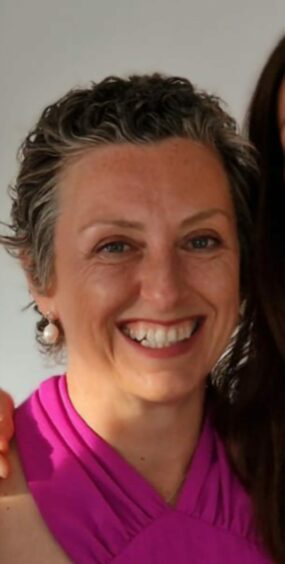
Mags McCaul, 51, North Lanarkshire
I had to pay £28,000 for private treatment because the NHS was not able to find a quick date for my surgery despite ovarian cancer being a fast-spreading disease.
After being diagnosed last August, I had three rounds of chemotherapy and expected to get a date for surgery within a month or so. It was devastating being told it would be at least a 12-week wait and maybe more.
At that point, when you are feeling so scared and so sick, you just want to find a way to stay alive.
I got my surgery in London in December, and I’ve had my six-month check-up which shows I’m all-clear so far.
If I hadn’t found the money, I might not be here today, that’s the bottom line.
We need far more education and awareness of this silent killer than we have right now.
Far too many women believe ovarian cancer is included in a smear test, and there is not enough available information telling them that it is not.
It’s unacceptable that women are still having to fight to get the proper treatment, and inequality is costing lives.
‘Endless waiting’
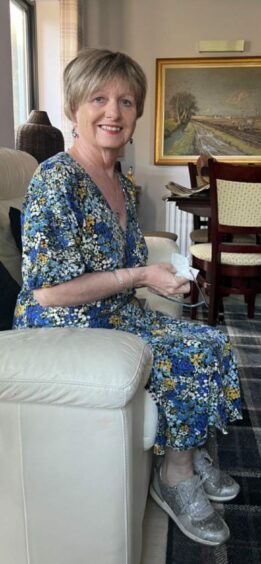
Irene Hartshorn, 68, Ayr
I had stage-four ovarian cancer, which is fast-spreading and deadly.
You need decisive action, but I was endless months waiting for tests and surgical dates that never came.
I’d returned from a holiday to Australia to see my son last October and noticed my stomach swelling. I got tests and a CA-125 test in November, which was massively raised.
Three months later I was still waiting to get an NHS surgical team or diagnosis of whether I had bowel cancer or ovarian cancer. I was told there was a waiting list of weeks and months as there weren’t enough pathologists to carry out the tests. At the same time I was being told the prognosis was not good.
After months of uncertainty, my sister was so horrified by the deterioration, she insisted on helping fund private treatment in London. It saved my life.
If I’d continued waiting for the NHS, I doubt I would be looking forward to this Christmas.
‘No surgery’
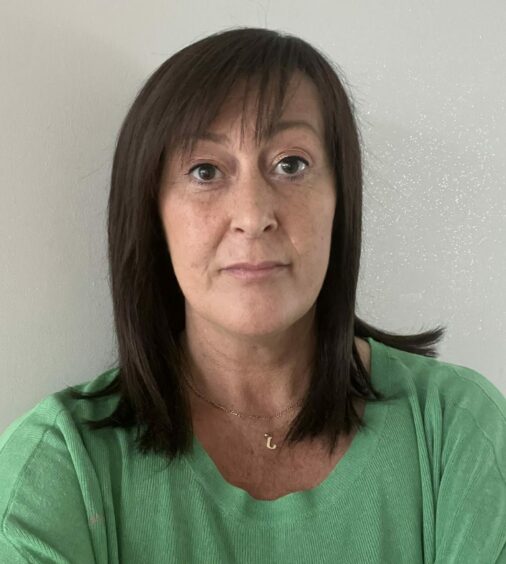
Julie Craig, 52, Ayr
I was told I could wait months for surgery. No date was available.
I always believed in the NHS and relied on it, but I chose to get my surgery as quickly as possible because I wanted to live.
I never dreamed that after paying National Insurance all my life, I would have to ask my family to dig into their savings to pay for ovarian cancer treatment to keep me alive.
But I believe I am only here because I did not wait until an NHS gynaecological surgeon and colorectal surgeon could find a date that worked for them both to get together to operate on me.
I don’t blame the cancer teams or the NHS staff in any way. They were all wonderful.
I blame NHS managers who can’t get their act together to provide the correct staffing to treat the fifth leading cause of death for women, and the Scottish Government for presiding over this deadly inequality despite all of their promises.
‘Devastating’
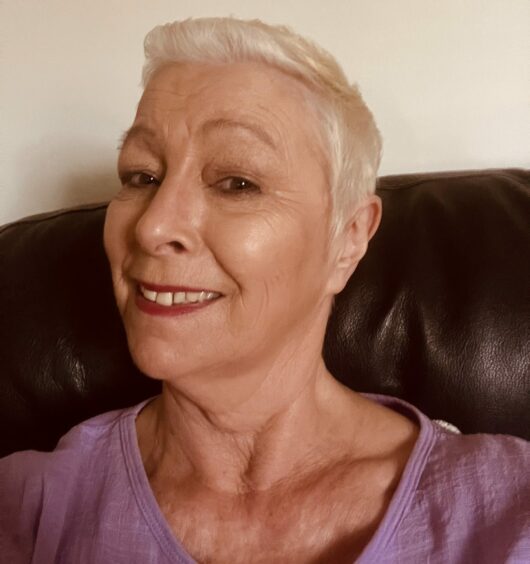
Gayle Cowie, 51, Prestwick
I first went to my GP last January, and I eventually got a CA-125 test in May. The results were concerning, but it was almost July before I got the CT scan which showed I had stage 4 ovarian cancer.
Because there was no date for my surgery, I ended up having my six chemotherapy sessions instead of three before surgery followed by another three chemos.
By November, I was told they could not find a date for both a gynaecology surgeon and a colorectal surgeon to be available for my surgery. They said it could be months, maybe even this March before a team were available.
The survival rates for stage 4 ovarian cancer are not great at the best of times.
To be told there is no treatment date for you is devastating at a time when you are so desperately low and ill. I’m lucky my partner and I had money saved to pay off our mortgage, so we used that to pay to travel to London to get the treatment I needed last January.
I doubt I’d be here if we hadn’t done that.

Enjoy the convenience of having The Sunday Post delivered as a digital ePaper straight to your smartphone, tablet or computer.
Subscribe for only £5.49 a month and enjoy all the benefits of the printed paper as a digital replica.
Subscribe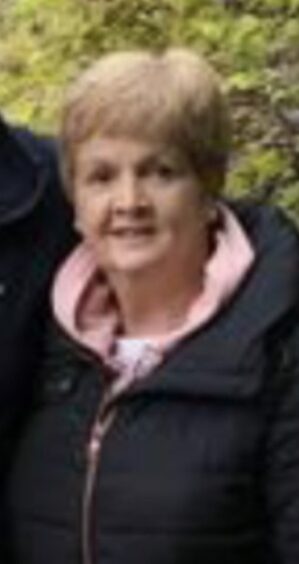
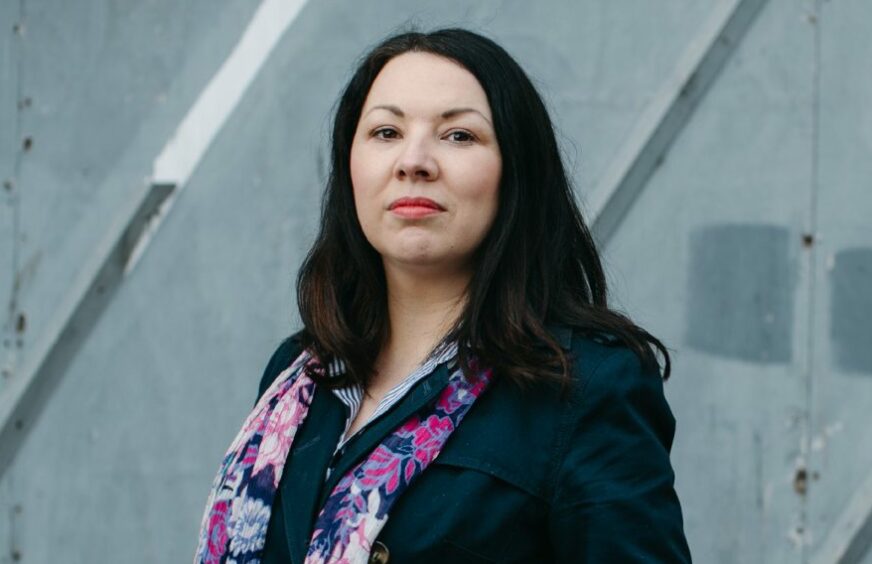 © Andrew Cawley
© Andrew Cawley